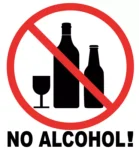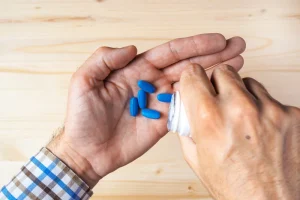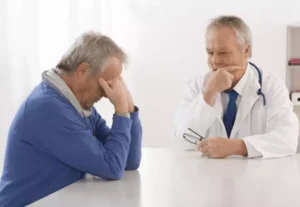
Cannabis often precedes or is used along with other substances, such as alcohol or illegal drugs, and is often the first drug tried. Safety during the detoxification process and the importance of continued rehabilitation is detailed by Dr. Ashish Bhatt, MD. Speak with someone who can help you find a medically assisted detox. Taking recovery one step at a time is often the best approach for long-term success. With medication-assisted treatment, certain prescriptions are given to assist with recovery and help you cope with the symptoms of detox. Gradual substance tapering is a term used for the process of slowly decreasing the amount of a substance over a specific period of time.
Common medications used to treat drug addiction and withdrawal

A medically assisted detox can reduce withdrawal symptoms and ensure safety. Drug addiction, also called substance use disorder, is a mental health problem. For that reason, detoxing on your own, without any guidance or supervision, is generally not wise. After evaluation, your team will design a customized treatment plan, which may consist of medications to ease withdrawal symptoms.
Symptoms of Substance Withdrawal
- The purpose of detox is to safely manage withdrawal symptoms when someone stops taking drugs or alcohol.
- Both methadone and buprenorphine may be used solely as detox medications, or their use may be continued as part of maintenance management to prevent relapse.
- An overdose can happen if relapse occurs after tolerance has decreased.
- However, the best chance for recovery starts with completing a supervised detox program as intended.
- These drugs are not all in the same category, but they share some similar effects and dangers, including long-term harmful effects.
- Each person’s timeline for recovery varies based on their unique needs, substance use history, and life circumstances.
Detoxification typically takes a few days (7 days) to a few weeks, depending on the substance, the level of dependence, and the patient’s access to assistance. The rapid or ultrarapid methods were designed to make the detoxification process shorter and easier. In an opioid overdose, a medicine called naloxone can be given by emergency responders, or in some states, by anyone who witnesses an overdose. Withdrawal treatment depends on the substance used, the severity of the symptoms, and the needs of the person going through withdrawal. While most cocaine withdrawal symptoms go away after a week to 10 days, some symptoms may last years. Experts believe that tackling the emotional residue of addiction—the guilt and shame—is fundamental to building a healthy life.

How do you prevent withdrawal symptoms?
He is charged with falsely filling out a federal firearms form denying he was addicted to any narcotics. And he is charged with knowingly possessing the revolver despite the restrictions against drug addicts owning firearms. “They’ll sit outside of AA meetings looking for weak and vulnerable people that they encourage to relapse so they can then pick you up again,” she said. Osbourne’s journey with addiction began when she was 13 years old after she was prescribed opiod medication following a routine tonsil removal procedure. “First rehab I went to was like university on how to be a better drug addict.”
- However, the right detox program can help make the path toward recovery easier to follow.
- Unsupervised detox, especially when quitting substance use suddenly, can cause the fetus stress and even lead to preterm labor.
- As the medical field considers addiction as a brain disorder potentially altering stimuli pathways in the brain, people facing substance dependence may have a difficult time safely quitting drug use.
- Medical detox takes place at a detox facility, so you can be closely supervised and monitored by your doctor.
- Quitting “cold turkey” or without medical supervision can lead to serious issues such as seizures and severe dehydration.
- Several treatments are available to manage the recovery process safely and substance detox is one of them.
- Individuals with experience and expertise may find a route to full employment by first being willing to offer their skills pro bono or as a volunteer to businesses or nonprofit organizations in their field.
- Providing a safe discontinuation from a substance of dependence is one of the main objectives of detox.
- Drug counseling makes up the bulk of time most individuals will spend in a rehab center.
- Identifying success in the realm of addiction treatment may require people to reframe preconceived ideas about what recovery means.
- Non-prescription stimulants include cocaine, methamphetamine and MDMA.
- Because little is known about designer drugs, which can differ widely in their ingredients, withdrawal experiences can be unpredictable.
SUDs can lead to significant problems in all aspects of a person’s life. Patterns of symptoms resulting from substance use (drugs or alcohol) can help a doctor diagnose a person with a SUD or SUDs and connect them to appropriate treatment. Alcohol and drug use during pregnancy can pose serious risks to the mother and the fetus.

What Comes After Substance Detox?
Due to this, residential treatment is recommended to reduce the occurrence of withdrawal symptoms and prevent harm to the fetus. The main goals of medication-assisted treatment for pregnant women may involve relapse prevention and managing discomfort during the process that family members may not be equipped to handle. Doctors use prescription drugs to stabilize drug detox pregnant women to avoid any complications. Opiate and alcohol detox can do the most harm to the fetus; if not done under medical supervision, the chances of stillbirth can double or even triple, depending on the type of drug being used. Other effects include fetal alcohol syndrome, birth abnormalities, low birth weight, premature birth, and neurological effects.
Why do some people become addicted to drugs while others don’t?
While some (although certainly not all) physical symptoms can be addressed to a limited extent in this process, mental health impacts generally cannot be. If you’re considering detox for yourself or supporting a friend or family member, this guide is designed to help navigate the challenge of addiction recovery. A treatment https://ecosoberhouse.com/ center will attempt to verify your health insurance benefits and/or necessary authorizations on your behalf. Please note, this is only a quote of benefits and/or authorization. We cannot guarantee payment or verification eligibility as conveyed by your health insurance provider will be accurate and complete.

Other life-changing complications

Medical detox refers to ridding the body of toxic, addictive substances under the supervision of a licensed medical professional team. This team is usually headed by a physician and comprises nurses, clinical staff and therapists. Some facilities utilize advanced practice staff like nurse practitioners or physician assistants to deliver medical care during detoxification. As with other diseases and disorders, the likelihood of developing an addiction differs from person to person, and no single factor determines whether a person will become addicted to drugs. In general, the more risk factors a person has, the greater the chance that taking drugs will lead to drug use and addiction. Risk and protective factors may be either environmental or biological.
Preventing a relapse
Also referred to as medically supervised withdrawal, detox is a therapeutic approach used to treat the acute withdrawal symptoms caused by reducing or discontinuing substance use. Another one of the most important ways to support recovery is to understand that multiple relapses over a number of years are typically part of the process. They are not occasion for blame or despair but for encouraging resumption of recovery. Families can develop awareness of a loved one’s emotional, environmental, and social triggers of substance use and manage those. Studies show that families that participate in treatment programs increase the likelihood of a loved one staying in treatment and maintaining gains.
Why do some people become addicted to drugs, while others do not?
Without the help of clinical and support staff, treatment for withdrawal symptoms and related mental health concerns is much more limited or not possible at all. However, the right detox program can help make the path toward recovery easier to follow. Treating withdrawal symptoms, keeping clients comfortable, addressing related mental health concerns, and offering holistic support all encourage progress toward sobriety. This approach is designed to protect people going through withdrawals.

